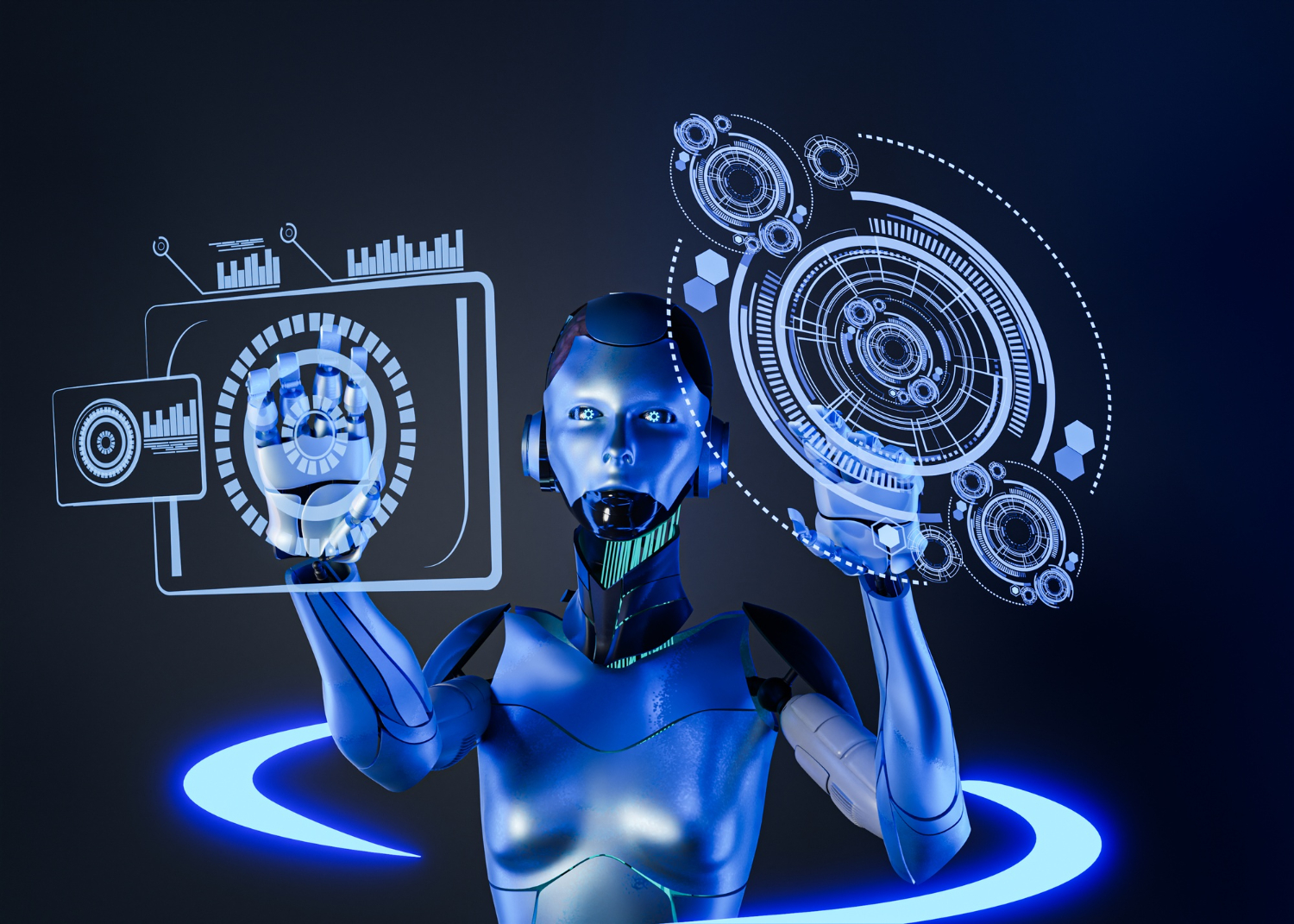Artificial Intelligence (AI) has started to revolutionize industries. From healthcare to transportation, programming is no exception. The integration of AI in programming is in control to change the way software is developed, tested, and maintained. The technological shift is paving the way for more efficient processes and innovative breakthroughs.
But what does the future hold for this relationship between AI and programming?
Could AI automate tasks that are currently manual? Are programmers’ jobs at risk? Will programmers eventually be replaced by intelligent machines, or will AI simply enhance the work they do?
To help you with these inquiries, we have crafted this thoroughly researched article. In this article, we’ll explore the exciting potential of AI in programming and the ways it could shape the future of software development.
The Evolution of AI in Programming
Historically, programming has been a manual and time-consuming task. Coders spend countless hours writing and debugging code to build applications and websites.
The introduction of high-level programming languages like Python and Java made coding more accessible. However, the process of building complex systems still requires deep technical knowledge.
In recent years, AI technologies, such as machine learning, natural language processing, and neural networks, have started to assist developers in automating repetitive tasks, improving code quality, and making software development more efficient. AI-powered tools like GitHub Copilot, OpenAI’s Codex, and DeepCode have proven that AI can write code snippets, suggest improvements, and even generate entire functions based on a developer’s input.
AI’s Impact on Code Generation
One of the most significant ways AI can impact programming is through automated code generation. AI algorithms can analyze a developer’s intent and generate code based on it.
The process reduces the amount of manual coding required. This capability is useful for repetitive tasks, such as writing boilerplate code. Such tasks can be tedious and prone to human error.
Tools like GitHub Copilot use AI to help programmers by providing code suggestions as they type. These tools can help you understand the context of the code and suggest relevant snippets.
This potentially reduces the time spent on coding by a significant margin. As AI continues to improve, these tools could evolve into full-fledged programming assistants that are well capable of writing larger and more complex chunks of code with less human intervention.
In the future, we can hope that AI might be able to generate entire applications from scratch. The advancement can happen based on a high-level description provided by coders. For instance, a developer might describe the features they want in an app and a website.
And an AI tool could automatically write the code, test it, and deploy it. This level of automation could dramatically speed up the software development life-cycle and make programming more accessible to non-technical users.
Debugging and Error Detection
Another area where AI can significantly impact software development is debugging. Debugging is an essential part of the software development process.
However, it can be incredibly time-consuming and challenging, especially for large and complex codebases. AI has the potential to make debugging more efficient by automatically identifying bugs and suggesting fixes. Moreover, advanced technology can also predict where future bugs might occur.
Machine learning algorithms can analyze vast amounts of data from past software projects. It helps in identifying patterns that are indicative of bugs. These algorithms can then be used to scan a developer’s code and flag potential issues before they become critical problems.
In addition, AI can be used to prioritize bugs based on their severity. It can help developers focus on the most pressing issues in the first place.
Some AI-powered tools are already capable of fixing certain types of bugs automatically. As these tools continue to improve, they could take on more complex debugging tasks. This will reduce the need for manual intervention. As a result, it will allow developers to focus on more creative aspects of programming.
AI-assisted code Review and Optimization
Code review is another essential area in which AI shows its expertise. Code review is an essential part of the development process. It ensures that code is well-structured, efficient, and secure.
However, manual code review can be time-consuming, and costly. Even experienced developers can overlook potential issues. AI can assist in code review by automatically analyzing code for performance bottlenecks and security vulnerabilities, and sticking to coding standards.
AI-powered code review tools can analyze a developer’s code and provide suggestions for optimization. These tools can identify inefficiencies in algorithms, suggest more efficient data structures, and even recommend ways to reduce the overall complexity of the code.
Additionally, AI can help enforce best practices by marking code that doesn’t adhere to the standards set by the development team.
In the future, AI may be able to perform code reviews entirely autonomously. It can allow teams to ship code faster without sacrificing quality. These tools could also be integrated into continuous integration and continuous deployment.
AI in Testing and Quality Assurance
AI’s impact on testing and quality assurance (QA) could be evolutionary. Testing is a crucial part of software development. However, it is mostly considered a bottleneck due to the time and effort required to thoroughly test every aspect of an application.
AI has the potential to automate large portions of the testing process. The process makes it faster, more efficient, and more accurate.
Machine learning algorithms can be trained on vast datasets to identify potential areas of concern in an application.
AI can automate the generation of test cases, simulate user behavior, and even run tests continuously to ensure that the software remains functional as new updates are introduced.
AI-powered testing tools can also help identify edge cases that might be difficult for human testers to find. These tools can simulate scenarios that involve unusual user behavior, extreme load conditions, or interactions with other systems. AI’s impact ensures that the software can handle a wide range of real-world situations.
The Role of AI in Personalized Learning for Developers
In addition to helping automate and optimize coding, AI can also assist developers in learning new programming languages and frameworks.
Personalized learning platforms powered by AI can analyze a developer’s skill level, learning pace, and preferences to recommend tailored learning paths. These platforms can provide interactive coding exercises, tutorials, and even real-time feedback to help developers improve their skills more efficiently.
AI-driven learning platforms could also adapt to a developer’s specific needs, helping them master the tools and technologies most relevant to their projects. As a result, developers can stay up-to-date with the latest programming trends and continuously improve their abilities without spending excessive time on irrelevant topics.
Will AI Replace Programmers in the Future?
A common concern among developers is whether AI will eventually replace them. No doubt, AI has the potential to automate many aspects of programming.
However, it’s unlikely that human programmers will be completely replaced. Instead, AI is more likely to act as a powerful tool that enhances the work of developers, allowing them to focus on more creative and complex tasks.
AI can take care of repetitive, mundane tasks like code generation, debugging, and testing, freeing up developers to focus on solving high-level problems, designing innovative solutions, and improving user experiences. Rather than replacing programmers, AI will enhance their capabilities, making them more productive and efficient.
Final Notes
The future of programming is undoubtedly intertwined with the advancement of AI. From automating code generation and debugging to optimizing code and enhancing testing processes, AI is certain to make programming faster, more efficient, and more accessible.
While there are still challenges to overcome, the potential benefits of AI in programming are vast. Far from replacing human developers, AI will likely serve as a valuable tool that helps programmers unlock new levels of creativity and productivity, shaping the future of software development for the better.





 Case studies
Case studies Career
Career